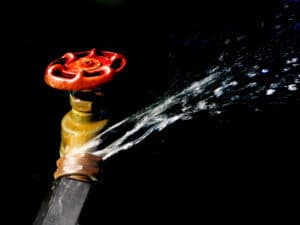When you review your broker’s or insurer’s website, there is one subject in workers compensation that most brokers and insurers never mention – leakage. Leakage in an insurance claim is any payment that is more than the payment should be. Leakage is defined as the difference between what the claims office spent and what they should have spent. Leakage is also been defined as lost opportunities to save money.
Workers’ Comp Claim Leakage Becomes Employer Expense
As workers compensation premiums are directly tied to the frequency and severity of employers’ claims, you will never hear the workers comp insurer say, “We did a poor job controlling the cost of your claims.” Their leakage becomes the employer’s expense through higher insurance premiums.
5 main causes of workers comp claim leakage:
- Inadequate claims handling.
- Judgmental mistakes.
- Poor claim processes.
- Overpayments.
- Bad customer service.
Click Link to Access Free PDF Download
“How Do I Get My Adjusters To Follow My Account Handling Instructions?”
While leakage can be caused by any one of these areas, it is often a combination of them that results in leakage.
There are about as many forms of leakage in workers compensation as there are workers comp subjects to be discussed.
10 examples of workers’ comp claim leakage:
- Payment of medical bills without adjustment to the fee schedule.
- The failure to properly investigate compensability and payment of claims that are not covered.
- The failure to pursue subrogation.
- The failure to utilize the early return-to-work program of the employer.
- The failure to properly manage utilization review opportunities.
- The failure to control the selection of the medical provider in those states where the employer controls the medical provider selection.
- The selection of inadequate defense counsel.
- The failure to pay medical benefits or indemnity benefits timely resulting in fines and/or penalties.
- The lack of automation and/or technology in the process where it could be utilized.
- The additional management and administration time due to any mistake in the claims handling.
The list could go on and on. Any failure to control the insurance claim can result in leakage.
Leverage Technology to Identify Leakage?
Some consultants and insurance brokers who attempt to identify leakage by the use of computer outcome modeling or algorithms. These provide a detailed report reflecting payment areas in which the employer’s claim cost exceed the average for their industry or the employer’s prior lost history. When the employer has thousands of claims, automated methods can identify some possible areas where there is leakage, but will miss many others. When the employer does not have thousands of claims, the cost averages can be influenced by a few outlier claims making the identification of leakage by computer averages less reliable.
An example of how computers and algorithms fail to identify leakage: A computer average for indemnity paid will not show the failure to contest small claims that should been investigated and denied. Because it is easier for the adjusters to pay numerous small claims rather than contesting them, the behavior looks like superior performance on a computer average, though, in fact, every small claim that was paid but should not have been, is leakage.
A better way to control leakage is the utilization of these 6 time-proven methods:
- Having an established set of best practices for workers compensation claims.
- Proper education and training of the workers’ comp adjuster including state statutes, customer service, and claims-handling practices.
- Excellent education and training of all support staff.
- Linking salaries and pay raises to compliance with best practices.
- Having an established work-flow process.
- Incorporating automation and technology into the claims process.
An integrated approach incorporating all of the methods will eliminate most leakage.
If you feel like there is leakage in handling your workers compensation claims, there probably is. Identification of various forms of leakage on your claims can be done through a claims audit. An experienced quality assurance auditor will be able to point out where leakage has already occurred and identify situations where mistakes have already been made, but can be corrected before additional money is paid. If you would like to discuss a leakage audit of your insurance claims, please contact us.

Author Rebecca Shafer, JD, President of Amaxx Risk Solutions, Inc. is a national expert in the field of workers compensation. She is a writer, speaker, and publisher. Her expertise is working with employers to reduce workers compensation costs, and her clients include airlines, healthcare, printing/publishing, pharmaceuticals, retail, hospitality, and manufacturing. She is the co-author of the #1 selling book on cost containment, Workers Compensation Management Program: Reduce Costs 20% to 50%. Contact:.
Contact: RShafer@ReduceYourWorkersComp.com.
Workers’ Comp Roundup Blog: https://blog.reduceyourworkerscomp.com/
©2019 Amaxx LLC. All rights reserved under International Copyright Law.
Do not use this information without independent verification. All state laws vary. You should consult with your insurance broker, attorney, or qualified professional.

















